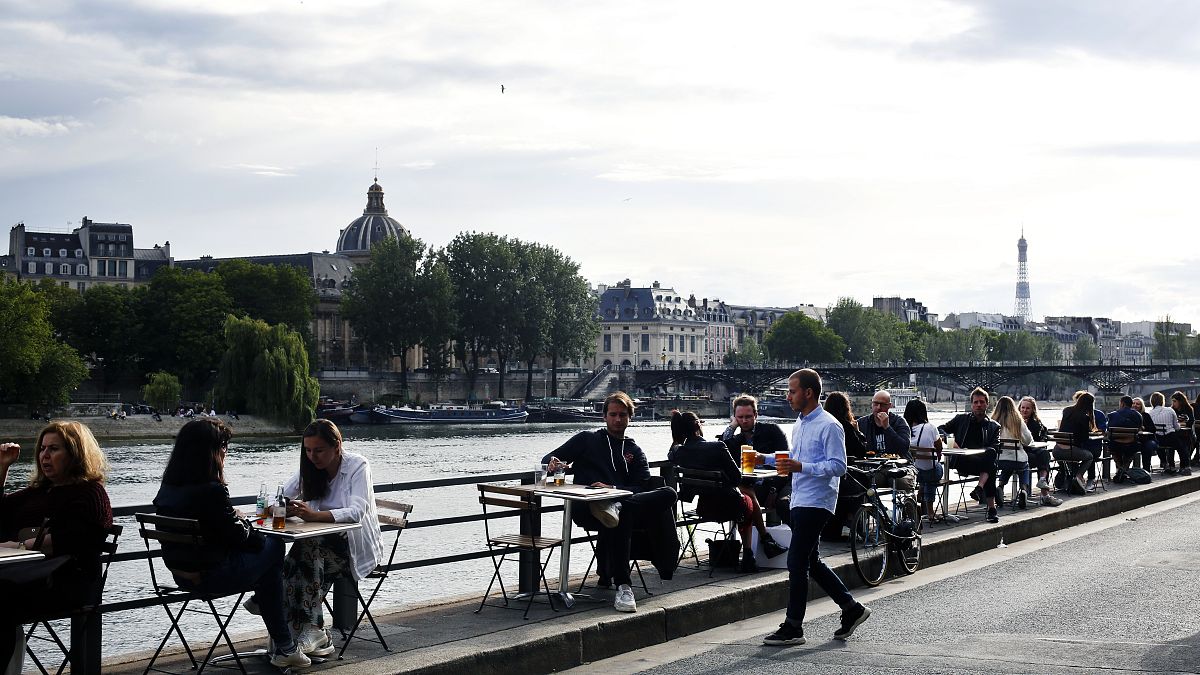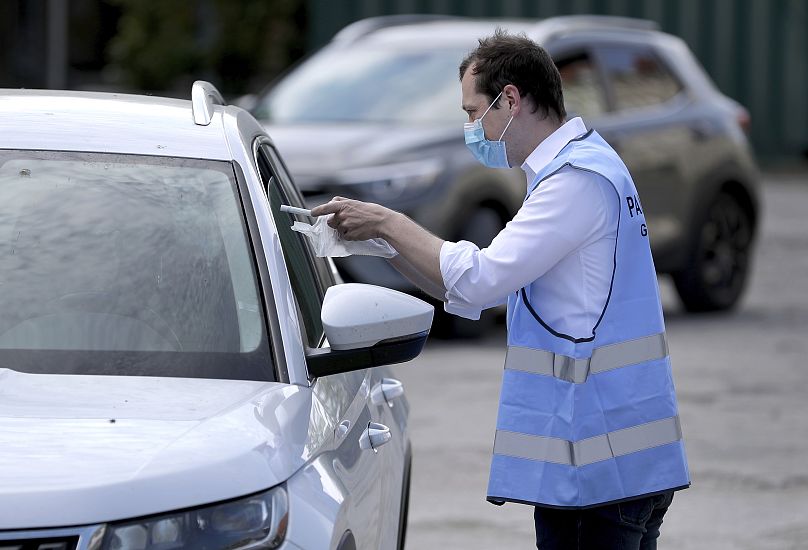European countries are now focussing on testing and tracing coronavirus cases in an effort to avoid issuing a second lockdown.
Many countries in Europe still record hundreds of new COVID-19 cases daily with clusters emerging in Spain, Portugal, France and Germany, but some experts are optimistic that countries are better prepared to stave off a second wave with effective testing and contact tracing.
Governments hope that by controlling local clusters of infections they can prevent the large community transmission seen during the first outbreak.
Germany, for instance, has reintroduced a lockdown in a county where thousands of cases have been linked to slaughterhouses.
Spain is restricting some businesses in a province where a cluster has been found.
And the wide exponential case increases have yet to be seen, experts say.
"It doesn’t seem like we are seeing a big second wave, we’re seeing local clusters. I think like many governments have been much better at saying we need to be careful of this," said Bary Pradelski, an associate economics professor at the French National Centre for Scientific Research (CNRS).
"They’re doing very local lockdowns even lockdowns of some blocks of streets," he added.
Could contact tracing and mass testing rule out the need for a second lockdown?
A team of researchers led by Tim Colbourn at University College London (UCL) mapped out 31 potential scenarios for an easing of restrictions in the United Kingdom.
They found that if 40% of infections are identified by testing and at least 40% of those contacts are traced and isolated, it will be possible to avoid a second wave.
"This is even if contacts per day increase to 80% of pre-pandemic levels as lockdown lifts," said Colbourn, a professor of global health epidemiology at UCL.
This depends largely on the scale and capacity of the testing and tracing of the UK government, which has exited lockdown in phases and hired thousands of contact tracers to locate potential coronavirus cases in the country.
In a perfect system, you can test and rapidly isolate people with coronavirus and all their contacts before a cluster is out of control.
"The laboratories are doing enough tests for this system to seem to work: for the time being, the outbreaks are under control. In addition, tests are used to monitor the prevalence of the virus," said Claire Mathieu, the director of research at the French Centre for Scientific Research (CNRS)'s Institute for Research in Fundamental Computer Science.
Mathieu uses algorithms to study the trajectory of the virus and the effects of lockdown.
France has the capacity to do 700,000 tests per week and employs 2,000 people focussed on contact tracing, according to the health ministry. Spain has carried out 238,858 tests during the second week of June. Germany's capacity is 1,099,000 tests per week, the Robert Koch Institute said.
But even when "the tracing and screening system is overwhelmed by an epidemic outbreak, other measures will be possible, such as a local lockdown," Mathieu said.
"The cornerstone of the response remains for every country to find, isolate, test and care for every case, and to trace and quarantine every contact," said a spokesperson for the World Health Organization's Europe office.
"It is hard to make predictions at this stage but we aware than many countries are mobilising considerable resources to ensure that testing and tracing capacities are ramped up."
Controlling local outbreaks
France exited lockdown by zoning: labelling departments red, orange or green based on virus spread and hospital capacity. Regions with a better public health situation were eased out of lockdown faster than others.
This zoning plan was created based on research by economist Bary Pradelski and mathematician Miquel Oliu-Barton.
Pradelski, a CNRS professor in Grenoble who is also an associate member of Oxford University's Oxford Man-Institute, said that managing the virus outbreaks more locally, by determining areas where the virus is less present, can help to contain future outbreaks.
"If we have new virus clusters, we should very quickly act locally and control the virus locally, restrict travel and use restrictive public health measures," said Pradelski.
It's important that people do not leave an area with active transmission of the virus and infect people in another geographic area, added Pradelski.
This is why the researchers propose a European zoning plan—to connect places with fewer coronavirus cases to each other to avoid 14-day quarantine restrictions between EU countries.
"I mean the virus doesn’t care what passport you have. The virus is much more controlled in Italy than in the UK. We think that international cooperation would be very useful economically but also contribute to less nationalistic rhetoric," Pradelski said.
Fears of a second wave
Beijing began to lockdown the city after finding a cluster of more than 100 cases connected to markets, an occurrence that has spooked many after weeks of no cases in the Chinese capital.
"The problem with Beijing is that there was no first wave because very early the first wave was in Wuhan and in Hubei [province]," Karine Lacombe, an epidemiologist at the Saint-Antoine Hospital told France Inter. She said their reaction was legitimate.
"They also don't want to repeat the same mistake in Hubei and Wuhan where they underestimated the intensity of the epidemic and locked down too late."
Meanwhile, South Korean officials have warned that they are in the midst of a second wave and may have to reimpose social distancing measures.
South Korea has recorded between 40 and 60 cases a day over the past week, a much lower number than in many European countries, and yet officials have raised alarm bells over the difficulty of tracing and isolating emerging clusters.
"There is no real overreaction to this virus," Michael Mina, an epidemiologist at Harvard's School of Public Health, told Euronews during a virtual press conference last week.
"It has the potential to do extraordinary damage to our society and the key thing is to keep cases from getting out of control as best we can."
Many experts are concerned about the upcoming fall season for a potential second wave as well.
In Europe, people are more likely to meet outside during the summer, "which is a lower risk for transmission so [a second wave] might be in the autumn, when people are inside more, and perhaps more fed up of restrictions," said Colbourn at UCL.
Governments are relying on populations to continue social distancing and reducing their contact with others, a tall order as people begin heading to restaurants and bars.
France's street music festival was criticised after photos emerged of people not wearing masks and crowding together in bars.
Recent events also show how quickly mistakes in isolating potential cases can influence numbers in a country.
New Zealand has been hailed for its swift lockdown measures but two women released from quarantine on compassionate grounds recently tested positive for coronavirus, which Prime Minister Jacinda Ardern called "an unacceptable failure of the system".
But it's not just the system that has to work - it's also an educated population, recognising that distancing and being vigilant are essential to keeping the coronavirus at bay, experts warn.
"Responding to this pandemic is a marathon, not a sprint, and the situation continues to evolve," a spokesperson for the World Health Organization told Euronews.
There will continue to be a risk of a resurgence in every country that must be "controlled through the rigorous application of public health interventions such as physical distancing or mask use."

